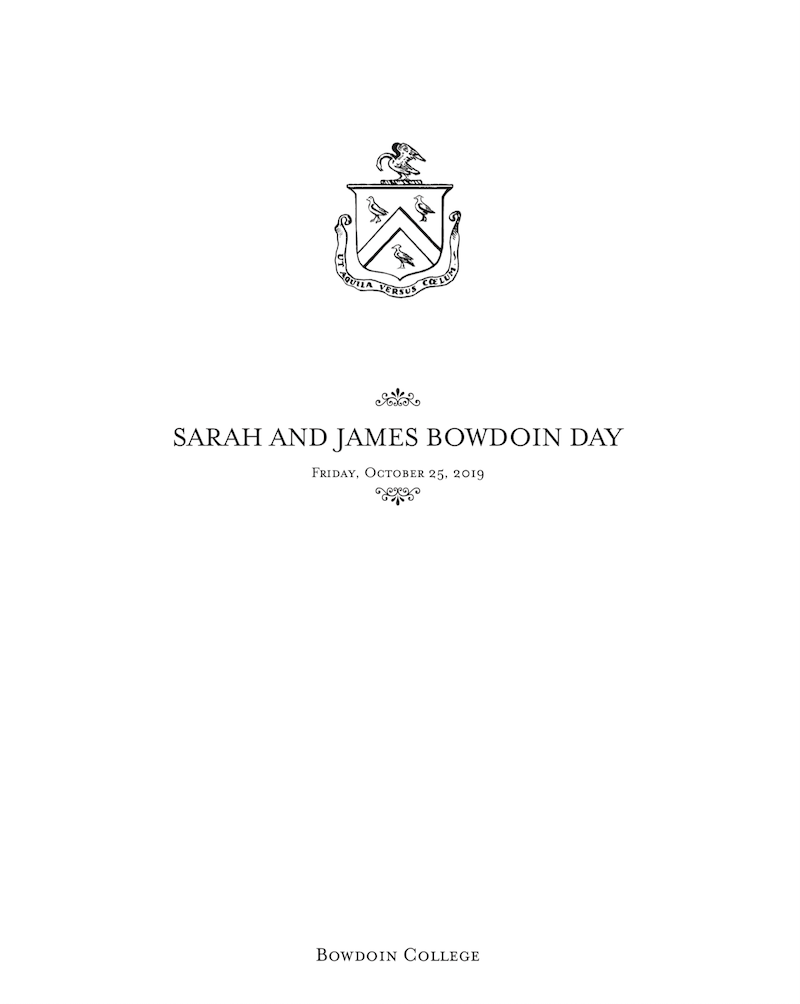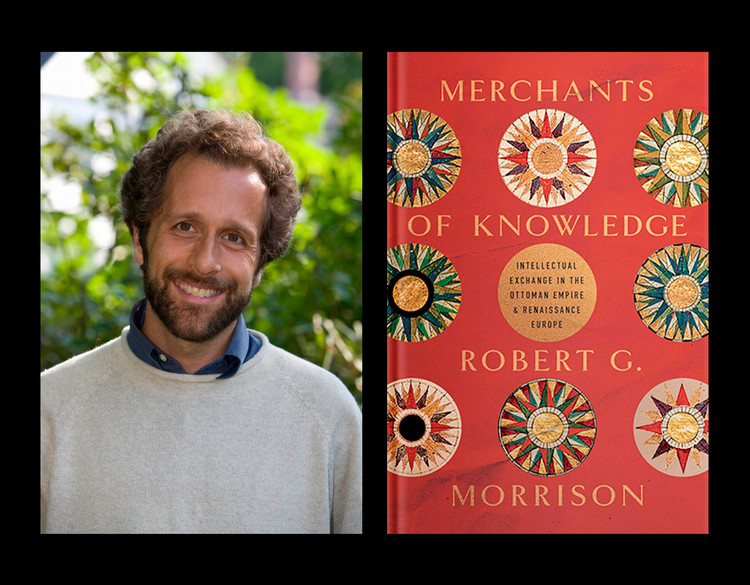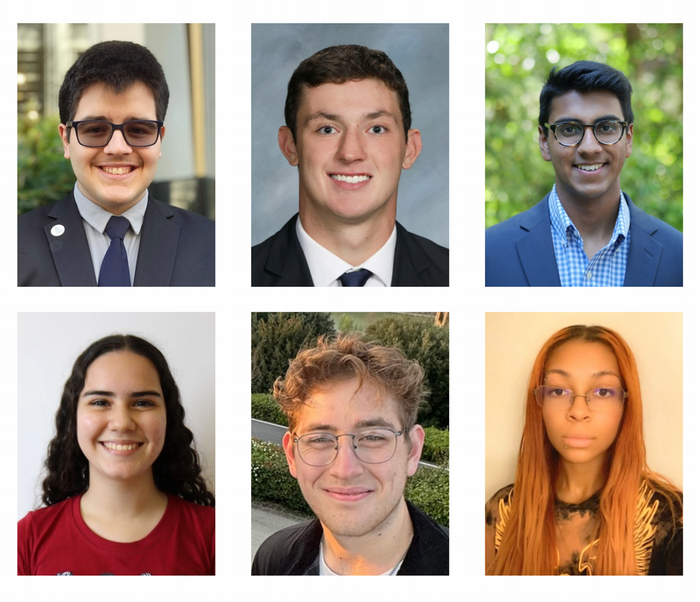Celebrating Academic Achievement on Sarah and James Bowdoin Day
By Rebecca GoldfineBowdoin celebrated the scholarly heights achieved by students during the College’s annual Sarah and James Bowdoin Day Ceremony Friday, October 25, 2019.
At the Sarah and James Bowdoin Day exercises, held each year in Memorial Hall's Pickard Theater during Family Weekend, members of the College community gather to recognize and give scholarship gifts to Bowdoin's highest-ranking students—those with grade point averages in the top 20 percent of their class as determined by the previous year's record.
Each scholar who earned a grade point average (GPA) of 4.0—the highest score awarded—also receives a Book Award, which bears a replica of the early College bookplate found on books in Hawthorne-Longfellow Library’s James Bowdoin Collection. In this year’s ceremony, thirty-two Sarah and James Bowdoin scholars received the award.
Additionally, this year the College honored twelve Phi Beta Kappa students from the Class of 2019 and presented four—Grace Cawdrey, Victoria Clarke, Alanna Haslam, and Pauline Unietis—with the Almon Goodwin Prize. The Goodwin prize is given to exemplary members of the academic society.
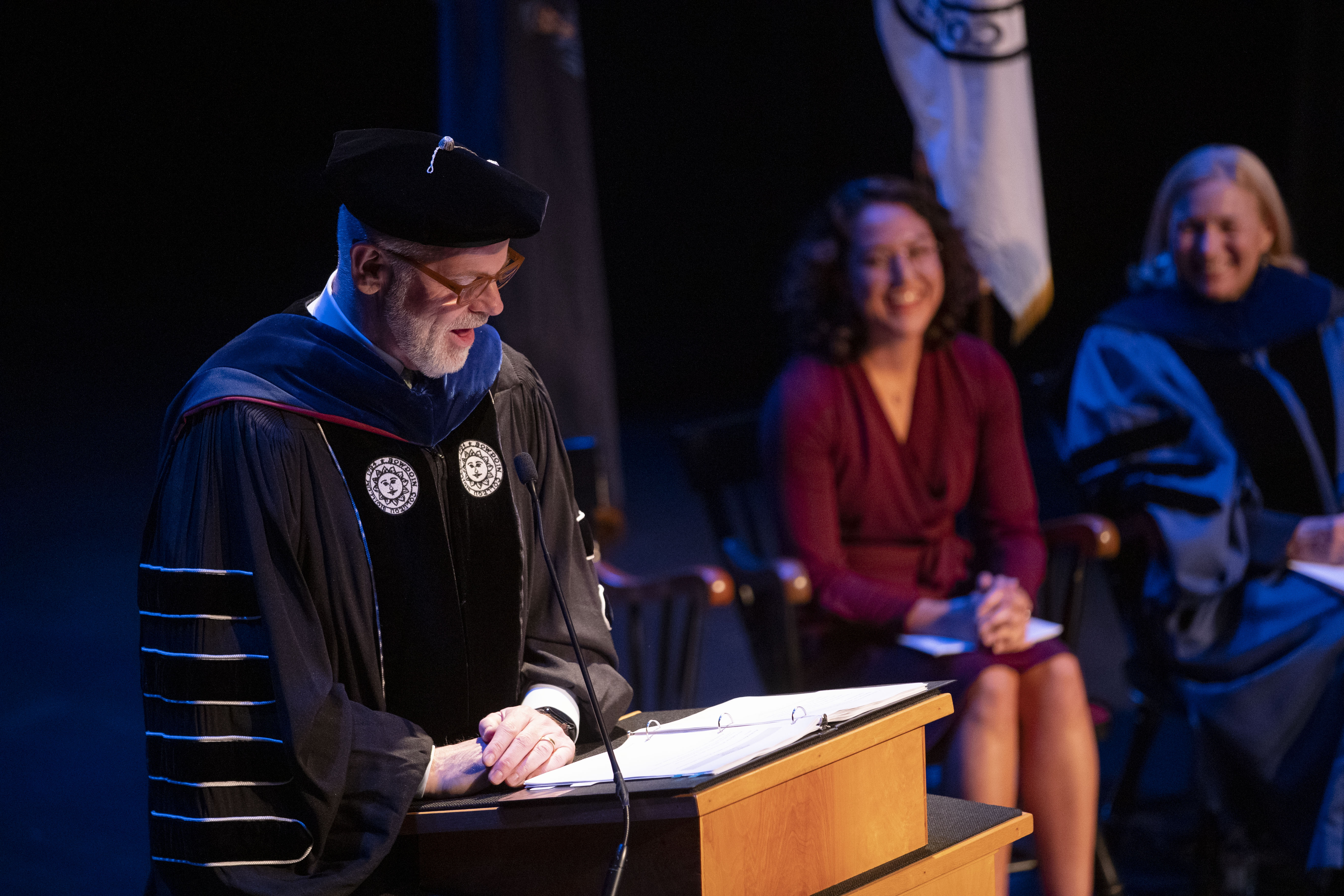
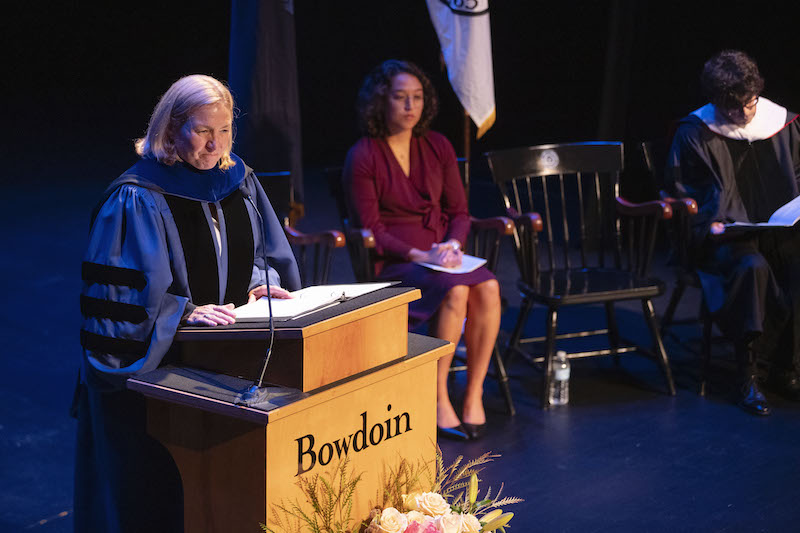
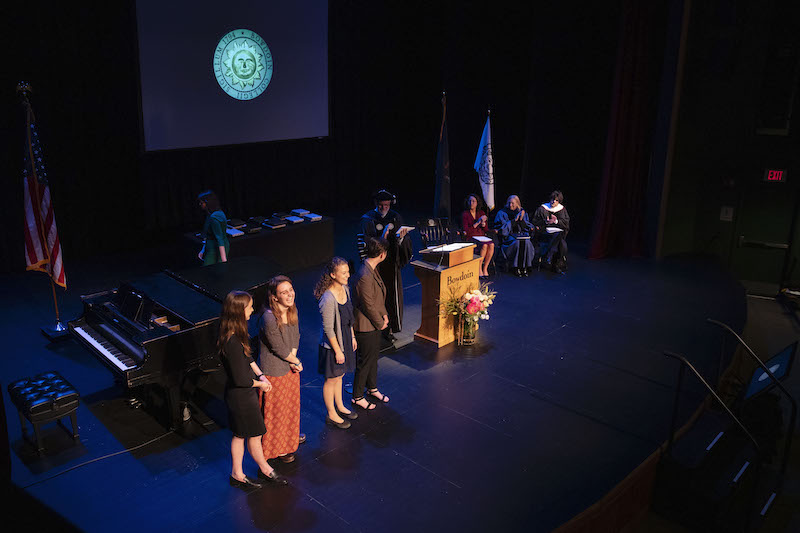
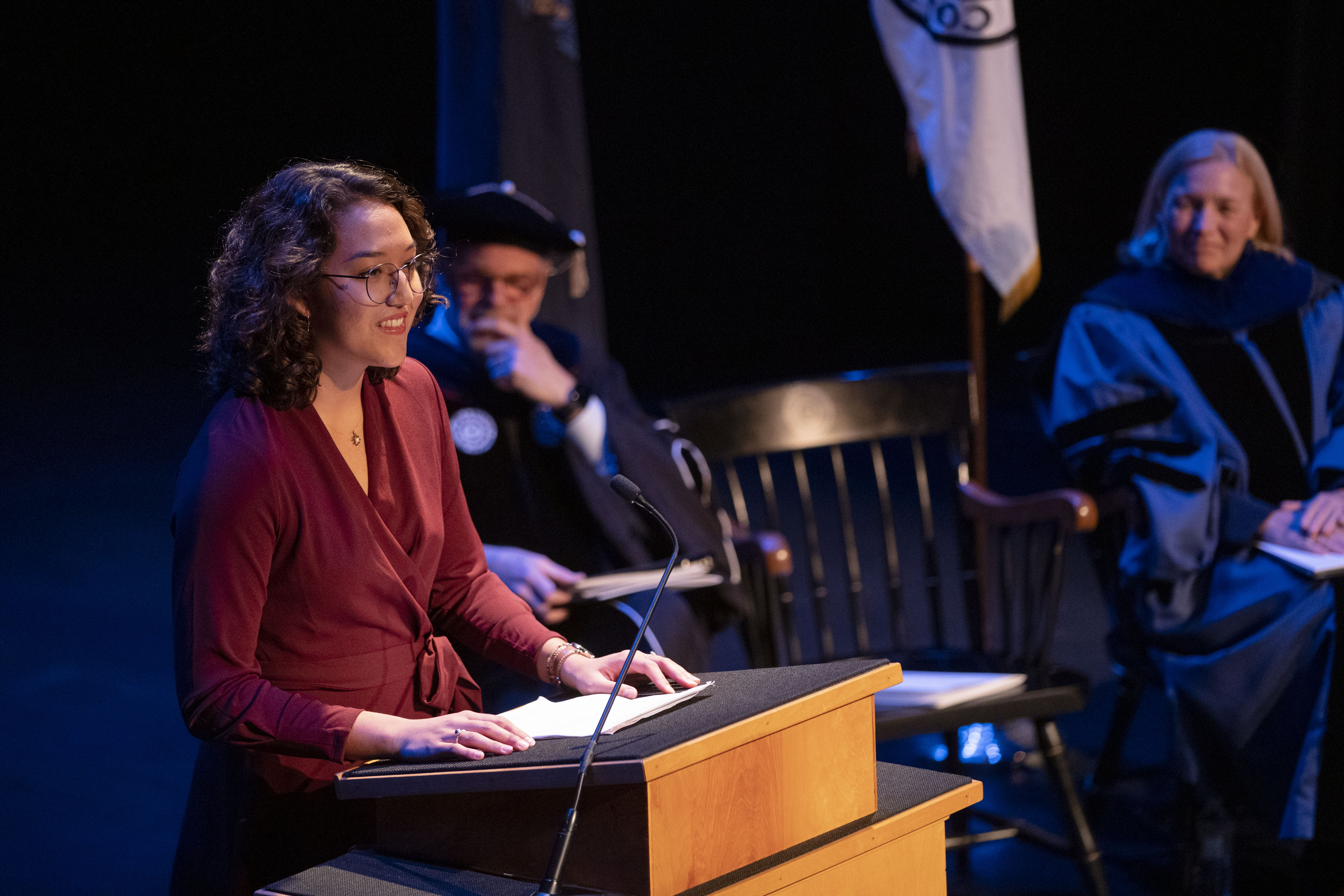
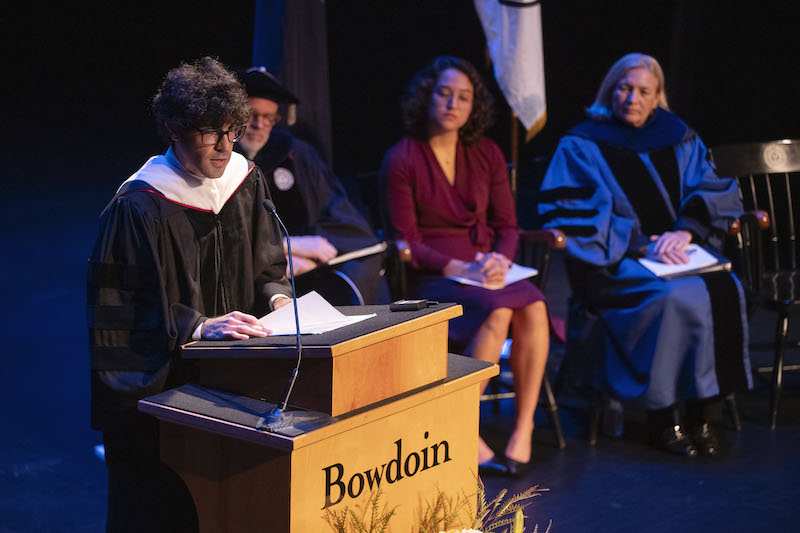
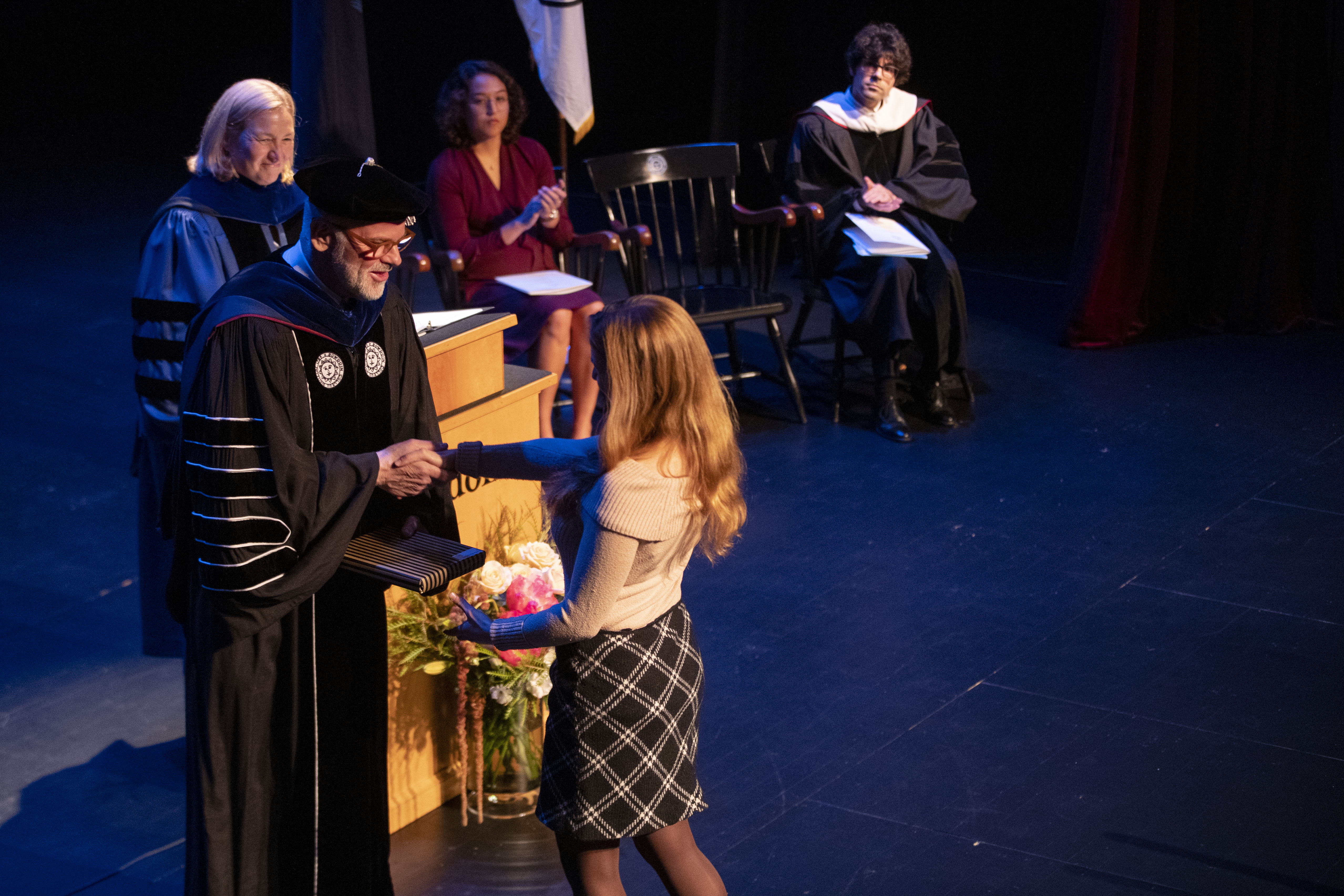
President Clayton Rose began his opening remarks by saying the ceremony ranks among the College's greatest moments.
"At Bowdoin, we place a premium on intellectual excellence, and we value hard work and achievement," he said. "The accolades we offer today are not earned easily. Ours is a rigorous academic program with standards that are challenging and with expectations set by faculty that are difficult to meet. The outstanding level of accomplishment demonstrated by these students requires intense focus, a deep pride in one’s work, and a passion for learning."
The annual fall ceremony includes two addresses, one by a highly recognized practitioner in a liberal arts discipline—from Bowdoin or elsewhere—and one delivered by an outstanding Bowdoin student. This year's speaker was Assistant Professor of History Salar Mohandesi. Caitlin Loi ’19 gave the student address.
Mohandesi is a historian of modern Europe. His research focuses on the transnational history of ideas, social movements, and political cultures in the wider context of war, revolution, and imperialism.
In "History After the End of History," Mohandesi framed the challenges and opportunities facing current students by recounting events of the past. He spoke about the state of the world after the fall of the Berlin Wall thirty years ago—a watershed moment for European history and a symbolic end to the Cold War. "The collapse of [Germany's community party] was proof that the Soviets had lost, and capitalism had won," he said.
The dissolution of the USSR followed soon after the wall came down. "Gorbachev’s resignation marked not just the end of the Soviet Union, but of the socialist project itself," he added.
